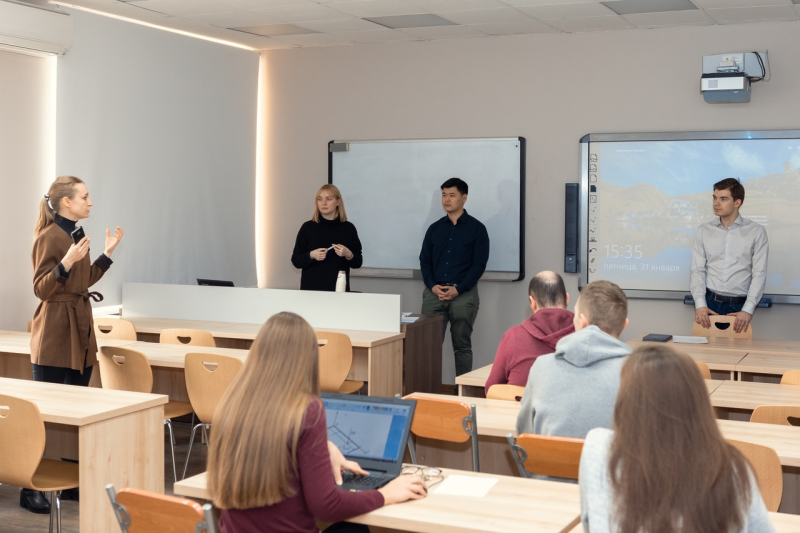Love what you do, so that others love it to
You can’t interest a student in a subject which you as a lecturer don’t find interesting – this was one of the basic principles of active learning shared by the CEU specialists. Apart from the obvious interpretation, this also means that if a lecturer has to deliver the same lecture for an umptienth time, they risk starting to do it automatically. It’s important to note that not all information communicated by the lecturer is perceived in the same way. The attention of a student is directly proportional to a lecturer’s personal involvement in the topic. So don’t be afraid to become known as that zany scientist constantly enthusing about their subject; this could be what boosts your expert authority and attracts students’ interest.
Your studies are your own business
An essential principle of active learning is an individualized approach and personalization of learning tasks. There are many ways of implementing this strategy such as small group tasks and individual presentations. The main idea behind such work is in giving a student the opportunity to find something that they would be eager to grasp and that would be close to their interests in a specific subject field. This is especially important for Master’s students: for example, their practical projects can pertain to the area of their specific skillset if they’re already employed by specialization.

Allow people to make mistakes
Active learning is, first and foremost, about a student’s own activity and giving them the space to ask questions and express their opinion – and here the lecturer’s behavior is of principal importance. If they go the conservative way of rigidly accepting “the only right answer” taken from books and lectures, a student won’t risk showing their supposed incompetence and sharing their opinion, which means that they’ll stay passive in class. That’s why it’s crucial to give students the opportunity to make mistakes so that they learn and move from lack of knowledge to knowledge with the lecturer’s support. This is quite hard to implement in a class of 100-150 people but in this case, it may be useful to divide students into groups and search for ways to stimulate their activity.
Don’t talk about grades
If you regularly remind students about making the required grade and regulate their every step, most often, the learning process becomes reduced to sheer formality, which fundamentally contradicts the concept of quality learning. The acquisition of knowledge should be based on a student’s interest and fascination with a topic they potentially would dedicate their life’s work to. With that in mind, make sure to occasionally practice non-graded learning so that students won’t be afraid to say or ask something wrong because that would cost them their grades.

“This will come in handy in your work!”
Draw coherent parallels between studies and the students’ future professional practice: as often as possible, demonstrate how this or that skills can be applied in their future job. This automatically increases the topic’s value and nurtures the right kind of motivation among students: that they become good specialists and not just A-getters.
More carrots, fewer sticks
Support your students! No demotivator is more impactful than calling a student out on their purported incompetence or lack of understanding of the professional side of the question. The fact that a student knows a topic worse than you do is obvious, but allow them to immerse themselves in the process and feel part of the professional world; help them understand their mistakes without criticizing or hinting at their professional unsuitability. Instead, give them recognition for participating – this will increase the student’s confidence in what they do.

Delegate
Entrust students with their own learning. Delegate your tasks of searching for and presenting the information: allow them to work in pairs or groups or conduct a discussion where you would serve as a moderator in the joint search and approval of an optimal decision.





